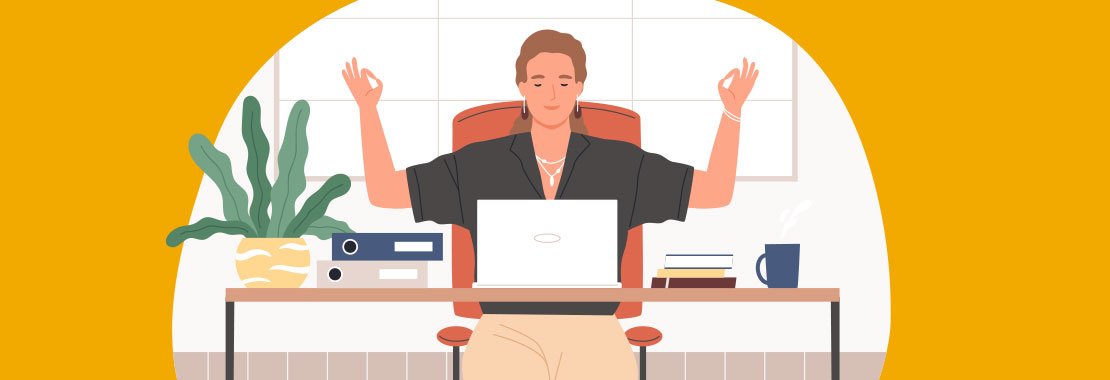Janet Mizrahi is a continuing lecturer who teaches professional writing at the University of California, Santa Barbara. She is also an author at BizCommBuzz.
We are social animals, we humans, and being cooped up and chained to our computers as we navigate remote and online learning is bringing out the animal in many of us (apologies to the animals). Grumpy much? Stress eating? Exhausted from existential ennui? All of the above?
I had my own personal breakdown last weekend when I realized I’d likely not be seeing or hugging most of my friends and family for months. When I’ve chatted with my colleagues, I realize I’m not alone in my feelings of isolation, fear, and barely contained panic.
But it’s difficult to be social when you’re a nervous wreck. Science has established that stress and anxiety are bad, releasing fight-or-flight reactions that have myriad negative consequences on our mental and emotional health. These can be manifested as fear and concern about loved ones and yourself, poor sleep, changes in eating habits, increased use of alcohol, and worsening of chronic health issues. So, before we connect, we should probably de-stress.
Strategies for Minimizing Stress
According to the National Institute of Mental Health, you can push through stress and anxiety during this difficult time by following a few tips. First and foremost is to take a break from the news. Instead, unwind with activities that bring you pleasure (time to re-watch Friday Night Lights!). Be good to your body by stretching, exercising, eating well, and sleeping regularly.
Be Creative in How You Connect
Once you feel fit to engage with humanity, the Department of Psychology at the University of Washington offers tips to connect remotely:
- Conduct book club using FaceTime or Zoom
- Go online shopping with a friend
- Invite friends to an online game night or dance party
- Have an online dinner party with friends; make the same dish so you can discuss your meals
- Watch TV shows together
Temple Health in Philadelphia provides these nuggets of advice:
- Connect virtually by having coffee with a friend in the morning or an end-of-the-day drink
- Host a cooking lesson with friends and then eat the results at a “communal” dinner
- Read a story to a child you’re unable to visit with
- Catch up on long-ignored to-do items with your family: plant a garden, cook dinner together, bring out the board games, exercise with others using videos on YouTube
- Hang out with neighbors while keeping apart in driveways or balconies
- Go old school and use your phone to actually speak to a friend or family member
Preventing Isolation from Becoming Loneliness
This last item can be particularly important. The American Psychiatric Association Center for Workplace Mental Health suggests regularly checking in with friends and family, especially those who are sheltering in place by themselves. Isolation and loneliness are a perfect recipe for depression, and depressed people often hole up instead of reaching out. Just a call to touch base can help a friend, colleague, or family member feel better, and you’ll feel better for helping.
I have a dear friend who lives alone. I realized I hadn’t spoken with her since my spring term started, and I gave her a jingle to check in with her. After we had made small talk for a few minutes, she confessed that none of her former work colleagues had reached out to her (she retired from teaching some years ago and now works at home full-time). I reminded her how hectic life is for instructors today, and that her old colleagues were likely as frazzled as I am from teaching multiple classes, not to mention dealing nonstop with needy students and new technology. I was able to give her insight into what we teachers are going through, and that helped her stop feeling so hurt and neglected.
I hope she remembers what we talked about, and to make sure she does, I’m going to connect with her more regularly.
Stay connected, readers. It helps.




